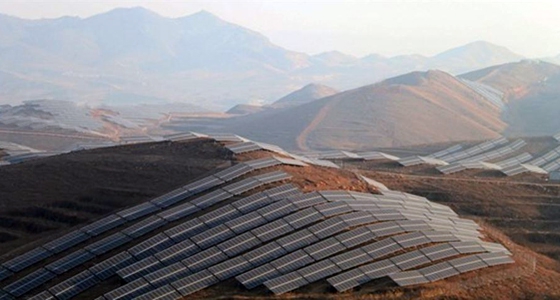Reports have surfaced that Italian companies Genesis and Dynkun have signed a memorandum of understanding with officials from Iran’s northwestern Qazvin province, for 100 PV plants of 10 MW each.
The potential for solar PV in Iran is beginning to be explored, after the majority of sanctions against the country were dropped earlier in the year. It now appears that two Italian companies have taken the first official plunge. Reports emerged in Iran on Sunday that two Italian companies have signed a deal to build an array of plants, totaling 1 GW of capacity, which are due to be constructed over the next 9-10 years.
The memorandum of understanding (MOU) covers 100 PV plants, each with a capacity of 10 MW, thus totaling an impressive 1000 MW. The Italian representatives from Genesis and Dynkun visited Iran on Sunday to discuss the project with officials from the province of Qazvin, after already having preliminary meetings over the proposal.
It is an extensive agreement, which will be funded by foreign investors to the tune of $1.5 billion. “The deal with 9 articles is an agreement where Italian partners will build a solar power plant of 1000 MW nominal capacity during a project defined for 10 years with the whole project divided to 100 units of 10 MW,” said deputy-head of Qazvin Provincial Investment Headquarters for Services Mohammad Ali Qasemi. “The power plants will cost $1.5 billion funded fully by foreign investors.”
Solar in Iran ready to take off
The announcement comes at an incredibly interesting time for solar – and renewable energies in general – in Iran, after the lifting of the U.S. and EU sanctions against the country. With the scaling back of political and financial restrictions, there has been an increased interest in the potential for renewables in the country, and a renewed enthusiasm in Iran itself.
Just last year new, more attractive, feed-in tariffs and PPAs were negotiated for the different renewable energies within the country, while at the same time the Iran-Wind Group and the Industry Association for Renewable Energies in the Chamber of Commerce of Iran were set up to help the growth of the renewable industry.
Speaking PV, Iran has ideal conditions for solar energy generation, as 80% of its vast territory has 300 days of sunlight a year, with solar irradiation in those regions between 1640 to over 2000 kWh/m2 per annually. “Qazvin has high potentials in wind and solar energy, and within recent past years, we have negotiated to attract investors to the sector,” said Qasemi.
The project in the province of Qazvin could be the first falling domino in what may become a thriving market, and one that European companies may look to take immediate advantage of, as large-scale PV stutters in European markets. Reports surfaced in 2015 of a German company that had signed a deal to build several solar power plants close to Tehran, with a combined capacity of 1.25 GW, however no follow-up information has been released.
pv-magazine.com
27 April























































